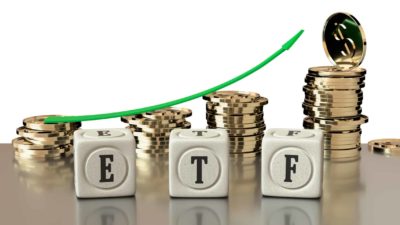Ethereum (CRYPTO: ETH), or Ether if you prefer, is once again outperforming Bitcoin (CRYPTO: BTC) today.
Ether is up just under 1% over the past 24 hours, currently trading for US$3,504 (AU$4,492). That's down slightly from the all-time high of US$3,607 that Ethereum breached earlier in the day.
Bitcoin headed the other way, slipping just under 1% in 24 hours to US$56,579. Bitcoin hit its own all-time high of US$64,829 in mid-April.
Bitcoin remains a high-returning investment in 2021, with the price up 94% year to date. That gives the world's biggest crypto a market capitalisation of US$1.05 trillion, according to data from CoinDesk.
While that's a stellar return by any standards, investors in Ether have done far better.
So far in 2021, Ethereum has gained 374%. That's seen the cryptocurrency's market cap grow to US$402 billion, steadily closing the gap with Bitcoin.
What's the difference between the 2 digital tokens?
With some 7,000 or more cryptocurrencies in virtual circulation, it's hard to keep track of even of a small fraction of them, let alone stay atop of what their primary functions are. Though, our task is made a tad easier in that many cryptos have little to no real function at all.
But Bitcoin and Ether, the world's top 2 cryptos, do have very different purposes.
Ether is a digital token used to verify and record transactions of all sorts on Ethereum, the world's most popular blockchain.
Bitcoin, on the other hand, is increasingly used in purchases and money transfers, as well as long-term holdings.
Explaining the difference between the 2 cryptos, Pat LaVecchia, Oasis Pro Markets CEO said (quoted by Bloomberg), "Ether is a blockchain platform that functions like the Apple store or Android app store. Bitcoin is a commodity like gold, or a store of value."
Why buy Bitcoin or Ether?
Phil Bonello is the director of research at Grayscale Investments. The company's trusts are involved in both Bitcoin and Ether.
According to Bonello, "Investors often look at Ethereum as a growth-type investment, making a bet on the continued development of the decentralized ecosystem built on Ethereum." He added that investors, "sometimes consider Ether as a way to get index exposure to all the development occurring on Ethereum."
Bitcoin, on the other hand, is arguably likely to outperform Ether in any future downturns.
As Bloomberg reports, "With a slide of about 20% in the Bloomberg Galaxy Crypto Index, there's notably more downside risk to Ether than its larger compatriot, [Cornerstone Macro] strategist Benson Durham said."
Durham added that, "With a rally of the same magnitude (so up 20%) you don't really get the concomitant upside to Ether compared to Bitcoin. Ergo the convexity, if you will, favours Bitcoin."
The case for both
If you're looking to invest in cryptos, you may wish to look beyond Ether, Bitcoin, or any single token. Just as with your ASX shareholdings, there's a good case for some diversification within a crypto portfolio.
As Cornerstone's analysts wrote:
Given that there are diversification opportunities among digital coins themselves, we should consider a small basket of them, rather than just Bitcoin alone, when we assess whether some allocation to crypto assets can reduce portfolio volatility alongside traditional assets.
Whether you already are investing in Ether, Bitcoin or other cryptos – or maybe just considering it – it's important not to lose sight of the massive historic volatility displayed by almost every single crypto.
Just as prices can rise by hundreds of percentage points in weeks or even days, they can also significantly crash just as quickly.








